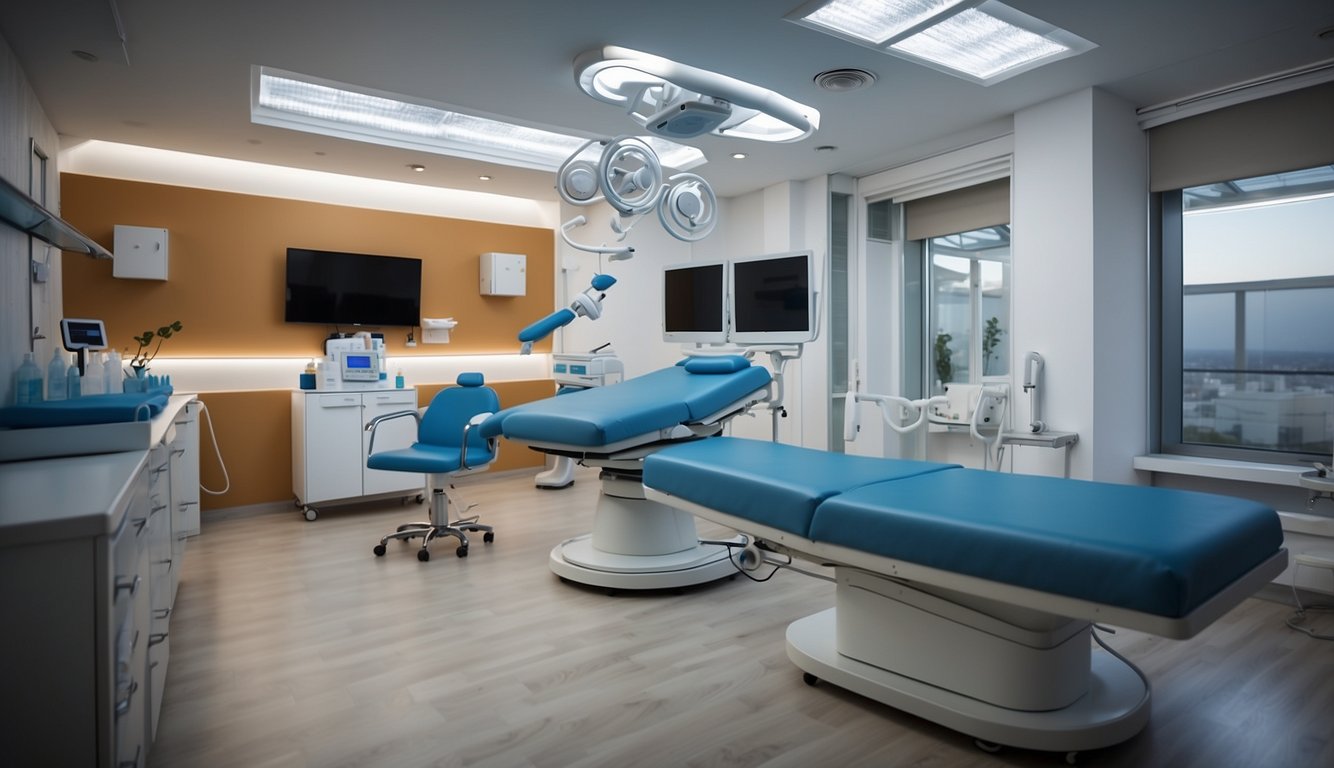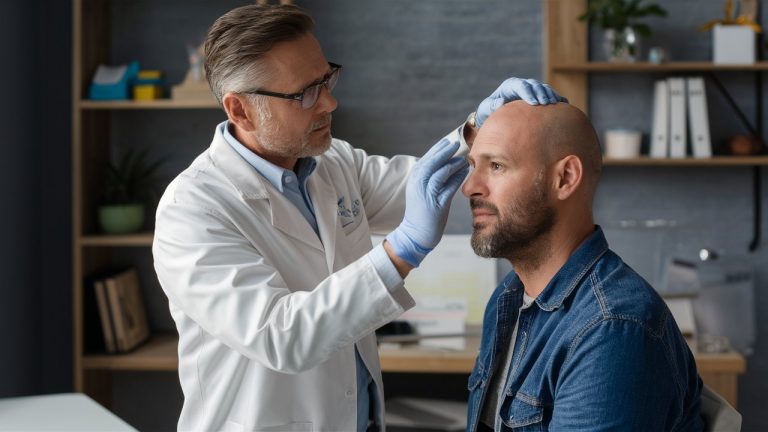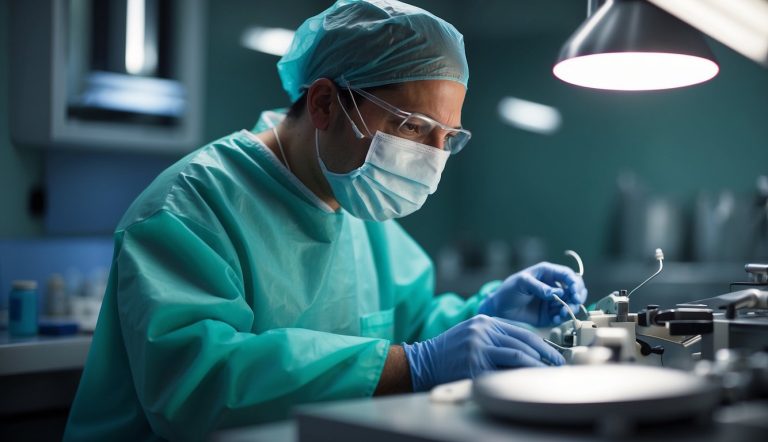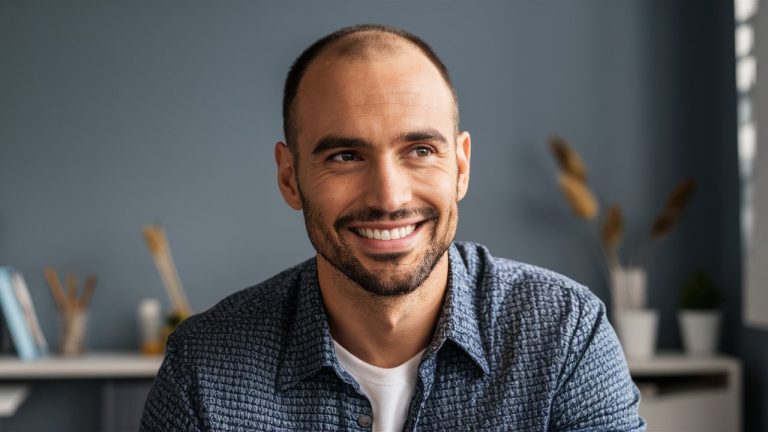How to Choose the Best Hair Transplant Clinic in Turkey
When considering hair transplants in Turkey, the primary techniques include FUE and FUT, with emerging methods like DHI and Sapphire FUE gaining popularity. Each method has distinct features, benefits, and limitations tailored to different needs.
Emerging HAIR TRANSPLANT Methods: DHI and Sapphire FUE
Direct Hair Implantation (DHI) is a refined version of FUE. In DHI, hair follicles are implanted using a specialized pen-like tool, allowing for precise placement without incisions. Higher survival rates of grafts and denser transplant results are key highlights of this method, although it can be time-consuming and costlier.
Sapphire FUE employs blades made from sapphire instead of traditional steel, which allows for finer incisions and potentially less tissue damage. This method aims to enhance healing and provide denser packing of grafts. Patients often report quicker recovery and improved outcomes in terms of hair density and natural appearance.
Evaluating Hair Transplant Clinics in Turkey
Choosing the right clinic involves examining credentials, reputation, and certifications. These factors ensure the clinic adheres to high standards.
Researching Credentials and Reputation
When evaluating clinics, it is essential to investigate their credentials and reputation. Start by checking if the clinic holds a valid license from the Turkish Ministry of Health. This ensures the clinic meets the necessary standards.
Patient reviews provide insights into patient satisfaction. Read reviews on independent platforms to gauge the clinic’s performance. Look for consistent positive feedback.
Another aspect to consider is the clinic’s surgeons’ qualifications. Verify if they are members of recognized medical associations and have extensive experience in hair transplants.
Considering Clinic Certifications
Clinic certifications play a crucial role in ensuring quality and safety. Look for clinics accredited by Joint Commission International (JCI). JCI is a prestigious organization that sets stringent healthcare standards.
Clinics with JCI accreditation demonstrate a commitment to patient safety and high-quality care. Additionally, check if the clinic complies with international healthcare protocols.
Take note of clinics that display these certifications prominently. This transparency indicates confidence in their standards and procedures.
Qualifications of Hair Transplant Surgeons
Choosing the right hair transplant clinic involves examining several factors related to the expertise and credentials of the surgeons. Focus on the surgeon’s experience and specialized training to ensure the best results.
Assessing Surgeon Experience and Specialization
Experience is a critical factor when selecting a hair transplant surgeon. Look for doctors who have years of practice in the field and a track record of successful procedures. Specialized surgeons often have focused experience in hair transplants, which can significantly impact the quality of their work.
Patients should ask about the number of procedures the surgeon has performed. Check for before-and-after photos of previous patients. These photos can provide insight into the surgeon’s consistency and results. Experienced surgeons often publish their work in medical journals, demonstrating their commitment to advancing the field.
Verifying Surgical Credentials and Training
Credentials are equally important when choosing a surgeon. Verify that the surgeon has board certifications from reputable medical boards. Board-certified surgeons have met stringent criteria for knowledge and skills.
Confirm the surgeon’s educational background and specialized training in hair restoration. Accredited training programs and fellowships indicate specialized expertise. Look for memberships in professional organizations, such as the International Society of Hair Restoration Surgery (ISHRS). These memberships can indicate a surgeon’s dedication to staying updated with the latest advancements in the field.
Cost Considerations and Financial Planning
When planning a hair transplant in Turkey, it’s essential to understand the various cost factors involved and how to financially prepare for the procedure. Comparing costs and evaluating all-inclusive packages can help ensure a cost-effective and well-planned decision.
Comparing Hair Transplant Costs in Turkey
The cost of hair transplants in Turkey can vary significantly based on clinic reputation, location, and procedure type. Patients often seek clinics in Istanbul, where average costs range from $2,000 to $4,000 for a typical session of 4,000 grafts.
It’s crucial to compare prices among several clinics, considering not only the base cost but also additional fees for consultations, follow-ups, and medications. Some clinics might charge extra for advanced techniques like FUE (Follicular Unit Extraction) or DHI (Direct Hair Implantation).
Understanding these elements helps in making an informed and cost-effective decision.
Evaluating All-Inclusive Package Deals
Many Turkish clinics offer all-inclusive package deals that can be appealing. These packages often include the procedure, hotel accommodations, airport transfers, and sometimes even meals.
When evaluating these deals, verify what’s covered to avoid hidden costs. A package might seem cheap initially, but scrutinizing the inclusions, such as pre- and post-operative care, can reveal its true value.
Look for details like the number of grafts, any guarantees offered, and quality of accommodations. Packages can simplify planning and ensure a smoother experience if chosen wisely.
Details of the Hair Transplant Procedure
The hair transplant process includes meticulous preparation, precision during surgery, and diligent aftercare to ensure successful outcomes. Patients can expect careful planning by the clinic and a tailored post-operative plan for optimal recovery.
Preparing for the Surgical Procedure
Before the procedure, a thorough consultation with the surgeon is critical. They will assess the patient’s scalp, hair condition, and medical history. It’s important to discuss expectations and potential outcomes clearly.
Patients are usually advised to avoid alcohol and smoking for at least a week before surgery to promote better healing. Medications like blood thinners should be paused under medical guidance. Proper scalp hygiene is essential, and patients may be instructed to wash their hair using a prescribed shampoo.
Understanding the Day of Surgery
On the day of surgery, the patient arrives at the clinic early. The surgeon will mark the areas for grafting and donor sites. Local anesthesia is administered to ensure a pain-free experience. The procedure might take several hours, depending on the number of grafts required.
The surgeon extracts hair follicles, typically from the back or sides of the scalp. These grafts are then transplanted into the thinning or bald areas. During the surgery, patients can usually watch TV or listen to music. After the procedure, the scalp is cleaned and bandaged.
Post-Operative Care and Recovery
Post-operative care is crucial for successful recovery. Patients are often provided with detailed aftercare instructions, including how to wash their hair and medications to prevent infections and reduce swelling. It is common to experience some redness and swelling for a few days.
Patients should avoid strenuous activities and direct sunlight for at least a week. Sleeping with the head elevated can help reduce swelling. Regular follow-up visits with the clinic are essential to monitor progress and address any concerns.
Adhering to these guidelines helps ensure proper healing and optimal results from the hair transplant procedure.
Analyzing Hair Restoration Results
Choosing the right hair transplant clinic involves a deep understanding of realistic outcomes and the long-term success rates of procedures.
Setting Realistic Expectations for Outcomes
Patients often seek natural-looking results with optimal density. It’s essential to recognize that most initial results appear three to six months after surgery, with full results visible after 12-18 months. Clinics should provide before-and-after photos from multiple patients, highlighting different stages of growth.
It’s important to discuss factors like the patient’s age, hair type, and the degree of hair loss. Not all hair types achieve the same density. A detailed consultation helps set clear expectations, addressing unique characteristics of each case.
Long-Term Success Rates of Hair Transplants
Long-term success of hair transplants is crucial. Successful transplants tend to show lasting results even years after the procedure. Clinics should offer data on their success rates, including percentages of procedures with sustained outcomes.
Follow-up care is a factor that influences long-term success. This includes post-surgical checkups and adherence to medical advice. Ongoing patient support can ensure the best possible outcomes, contributing to high success rates seen in top clinics.
Risks and Side Effects
Choosing a hair transplant clinic involves understanding the potential risks and side effects associated with the procedure. This knowledge helps in making informed decisions and preparing for possible complications.
Common Complications
Hair transplant surgery, while mostly safe, can lead to side effects. Common issues include swelling, bleeding, and redness at the graft site. These are usually temporary but need proper care.
Scarring can occur, particularly with certain techniques. Patients may also experience minor infections, necessitating antibiotics.
Another complication is folliculitis, an inflammation of hair follicles, which though easily treated, can be uncomfortable.
Proper clinic selection can mitigate most of these complications, but awareness and preparation are key.
Considering Geographic Location and Travel
Finding the right hair transplant clinic in Turkey involves choosing an optimal city and making proper travel preparations to ensure a seamless experience. It’s crucial to understand the geographical significance and necessary logistics.
Choosing the Right City for Hair Transplantation
Turkey offers several cities renowned for excellent hair transplant clinics. Istanbul stands out as a top choice due to its high concentration of reputable clinics and advanced medical facilities. Şişli, a district in Istanbul, is particularly famous for its specialized clinics and experienced surgeons.
Ankara, the capital, provides affordable and high-quality options, often less crowded than Istanbul. Antalya is attractive for those seeking a blend of medical treatment and holiday, known for its scenic beauty and advanced clinics.
When choosing a city, consider the proximity to Europe for convenient travel and potential follow-up visits. Each city offers unique benefits regarding cost, expertise, and ambiance. Compile a list of clinics in your preferred city and evaluate them based on these factors.
Travel Arrangements and Accommodation
Planning travel arrangements is essential for a smooth hair transplant journey. Turkey is well-connected with international flights, especially to Istanbul, which serves as a major hub. Booking flights earlier can result in cost savings and better scheduling options.
Upon arrival, options for accommodation range from budget to luxury hotels. In Şişli, for instance, staying close to the clinic can reduce commute times and stress. Consider facilities that offer airport transfers and other amenities to enhance convenience.
Length of stay varies depending on the procedure. Typically, patients may need to stay for about a week to accommodate consultations, the actual procedure, and initial recovery. Plan your schedule to include some rest days and potential follow-up appointments.
Ensure all travel documents, visas, and required paperwork are in order to avoid last-minute issues. A well-drafted travel plan can make the entire process efficient and stress-free.
Aesthetic and Psychological Impact
Choosing the right hair transplant clinic in Turkey can have significant effects on one’s appearance and mental well-being. The key areas of improvement often revolve around enhanced aesthetics and elevated self-esteem.
Improving Appearance and Self-Esteem
A successful hair transplant contributes to a more youthful and aesthetically pleasing appearance. For those suffering from male pattern baldness, the restoration of hair where it was lost can profoundly change their look.
Self-esteem often sees a marked improvement with the return of a fuller head of hair. People begin to feel more confident in social and professional situations. Minimal scarring and natural-looking results are critical for ensuring the newly transplanted hair blends seamlessly with existing hair.
Natural aesthetics can be enhanced by choosing a clinic with a reputation for precise and artful hairline design. This ensures the results look organic and improve one’s overall appearance without appearing artificial.
Expectations vs. Reality in Hair Restoration
Understanding what to expect from a hair transplant can prevent dissatisfaction post-procedure. Though expectations can be high, it’s vital to be realistic about the outcomes. The newly transplanted hair grows gradually, and full results might not be evident immediately after the surgery.
Most clinics provide a detailed timeline of hair growth phases, helping patients set realistic expectations. Addressing variables like hair loss patterns and the density of transplanted hair can also shape these expectations.
Potential candidates should be informed about minimal scarring techniques and the importance of consistent post-operative care. Proper communication with the clinic is essential to ensure the results align with the initial expectations, leading to satisfactory aesthetic and psychological outcomes.
Clinic Infrastructure and Technology
When choosing a hair transplant clinic in Turkey, it’s essential to evaluate the infrastructure and technology being utilized. Factors such as the quality of equipment, use of advanced tools like sapphire blades and Choi pens, as well as stringent hygiene and safety protocols, are vital in ensuring successful and safe procedures.
Assessing the Quality of Equipment
High-quality equipment is crucial for successful hair transplants. Clinics should use advanced tools like sapphire blades that provide precise incisions, reducing scarring. Choi pens offer better control during implantation, ensuring natural-looking results.
Technology also plays a vital role. Clinics should employ the latest systems for hair analysis and planning. Digital imaging and simulation tools help in designing personalized treatment plans.
Hygiene and safety standards are non-negotiable. Clinics must adhere to strict sterilization protocols to prevent infections. Sterile environments and properly maintained equipment are fundamental in ensuring patient safety. Checking the clinic’s certifications can offer additional assurance of quality and safety practices.
Aftercare Services and Support
Choosing the right hair transplant clinic involves evaluating the aftercare services and support provided. It’s crucial to understand how post-procedure follow-up and communication play significant roles in your recovery and satisfaction.
Planning Post-Procedure Follow-Up
Reliable clinics outline a clear post-operative care plan. This often includes scheduled follow-ups to monitor your progress and address any concerns. Patients should expect a structured timetable of visits, which might include check-ups at intervals such as one week, one month, and three months post-surgery.
Clinics should ideally provide detailed instructions on care and medication to prevent complications. These might cover how to wash your hair, what activities to avoid, and signs of infection to look out for. Written and verbal instructions ensure you understand how to take care of the transplanted area.
Communication and Ongoing Support
Effective communication channels are vital. Top clinics offer multiple ways to stay in touch, including emergency contact numbers, email, and patient portals. This ensures that you can quickly reach a healthcare professional if any issues arise.
Ongoing support often includes access to a dedicated team for post-transplant concerns. This team often comprises experienced nurses and doctors who can provide guidance and reassurance. Continuous support is vital for addressing any side effects or questions about hair growth and care.
Investing in a clinic that offers comprehensive aftercare ensures not only a successful transplant but also peace of mind as you heal and see results.
Frequently Asked Questions
Choosing the best hair transplant clinic in Turkey requires careful consideration of various factors, including the clinic’s reputation, quality indicators, and technique offerings. Additionally, understanding the costs and locating top cities for hair transplants is crucial.
What factors should I consider when selecting a hair transplant clinic in Turkey?
When selecting a hair transplant clinic in Turkey, factors like the clinic’s accreditation, the credentials of the medical team, and the availability of post-operative care services are essential. It’s also important to evaluate patient reviews and satisfaction rates.
How can I assess the reputation of hair transplant clinics in Turkey?
To assess a clinic’s reputation, one should check medical forums, review sites, and patient testimonials. It’s helpful to seek recommendations from previous patients and research the clinic’s history of successful procedures.
What are the indicators of a high-quality hair transplant clinic in Turkey?
Indicators of a high-quality clinic include board-certified surgeons, state-of-the-art medical equipment, and adherence to international medical standards. Additionally, comprehensive pre-operative and post-operative care signifies a clinic’s commitment to patient well-being.
How do the techniques offered by Turkish hair transplant clinics differ?
Turkish hair transplant clinics typically offer techniques like FUE (Follicular Unit Extraction) and DHI (Direct Hair Implantation). FUE involves extracting and implanting individual hair follicles, while DHI uses a specialized tool for direct implantation, reducing handling time of grafts.
In which Turkish city can I find the best clinics for hair transplant procedures?
Istanbul is widely recognized for having some of the best hair transplant clinics in Turkey. Cities like Ankara and Izmir also host reputable clinics with experienced surgeons and advanced facilities.
What is the average cost of a quality hair transplant in Turkey?
The average cost of a quality hair transplant in Turkey ranges from $1,500 to $3,500, depending on the technique used and the number of grafts required. Prices can vary based on the clinic’s reputation and the surgeon’s experience.






